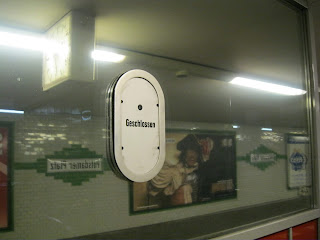The following poem is by the poet Rainer Maria Rilke. He wrote it in 1902. It is called "Herbsttag", a day of autumn, and it describes our mood when the days are getting shorter and we are still hoping for some summer that might be left.
Olympia, a student of mine, loves Rilke, and inspired by "Herbsttag", using it as a template, she wrote her own poem, titled "Wintertag".
Here we go.
Herbsttag
Rainer Maria Rilke
Herr: es ist Zeit. Der Sommer war sehr groß.
Leg deinen Schatten auf die Sonnenuhren,
und auf den Fluren laß die Winde los.
Befiehl den letzten Früchten voll zu sein;
gib ihnen noch zwei südlichere Tage,
dränge sie zur Vollendung hin und jage
die letzte Süße in den schweren Wein.
Wer jetzt kein Haus hat, baut sich keines mehr.
Wer jetzt allein ist, wird es lange bleiben,
wird wachen, lesen, lange Briefe schreiben
und wird in den Alleen hin und her
unruhig wandern, wenn die Blätter treiben.
Wintertag
Olympia T.
Winter,
Sei kurz und milde
Und lass uns deine Schönheit genießen
Gib uns sonnige, schöne Tage
Sodass unsere Haut
Endorphine produzieren kann
Halt die Straßen offen und sauber
Sodass wir unsere Fahrräder
Benutzen können
Und schließlich:
Bereite dich gut vor
Auf den nächsten Frühling













